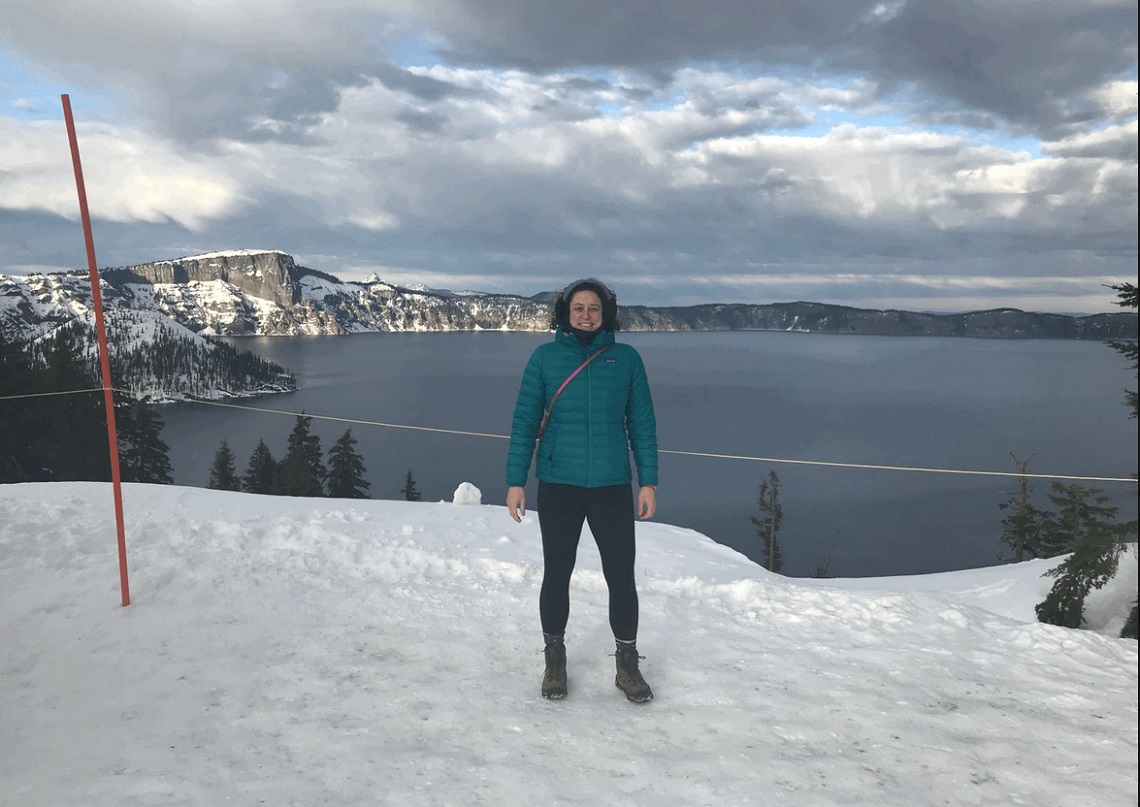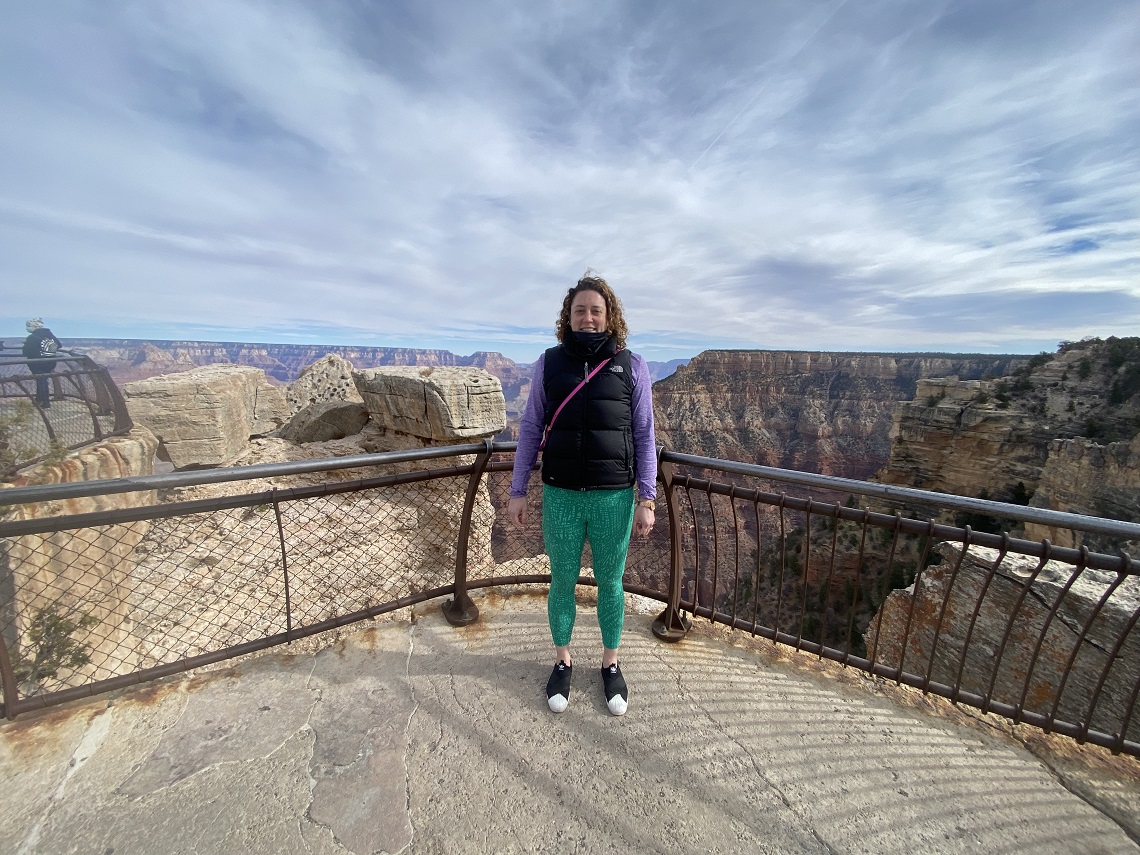Tools for the Untethered
Rachel Azaroff’s 312 Society supports remote workers, empty nesters and long-haul travelers
The pandemic-driven transition to remote work has presented a unique opportunity for many people: why work from home when you could work from anywhere? But as office workers who switched from a cubicle to a spare bedroom may dream of Zoom meetings on sandy beaches or in exotic locales, there are a host of logistics and expenses to consider. So, Foster alumni Rachel Azaroff (MBA, 2015) has launched 312 Society to support remote workers, empty nesters or anyone else considering a lifestyle of long-term traveling.
“312 Society helps people who want to take typically three to 12 months to be nomadic and explore,” Azaroff says. “We help them first decide what they want to do, and then plan it.”
312 Society’s website launched with content including tips on preparing your home for renting, information on countries offering remote work visas, and advice on downsizing. These articles are free to read. The site generates revenue by selling guides and templates to users who are ready to begin their journey.
Firsthand experience
The genesis for 312 Society came from Azaroff’s own experiences. A serial entrepreneur, she had previously founded a business helping Millennials manage their finances before taking a position as a senior program manager at the Seattle-based sales tax software company Avalara. Ready to move back to the East Coast to be near her family, Azaroff traveled across the country in search of where she would make her home before settling in Miami.

“In the second half of 2020, I sold half my stuff, sold my house in Seattle, shipped and stored my remaining belongings, took a month-long leave of absence and drove across America,” Azaroff explains. “So, I had firsthand experience. And then a lot of people from my personal and professional network reached out to me to ask about navigating the complexity I encountered. And that sparked the idea.”
Azaroff conducted market research, interviewing nearly 50 people in different stages of life who were considering alternatives to their current living situation. She found that the audience for such resources could include not just remote workers, but also retirees, empty-nesters and other people who are not necessarily tied down to a primary residence.
Freemium content
Today the 312 Society website features content and a marketplace. Azaroff says the next major step is increasing community features. She is currently evaluating Discord, Slack and other social media options to facilitate 312 Society members sharing with one another, as well as their friends and family back at home. Also in the works is increasing the content offerings, including a “freemium” subscription model, in which basic articles would be free for all while paid members would have access to more in-depth content.

Azaroff sees the site’s future community features and monetization going hand-in-hand. She plans for the marketplace to include user-created content, which members will be able to make available for purchase, generating revenue shared between themselves and the site. Affiliate sales of relevant products will provide an additional revenue stream. With a clear path to growing her business, Azaroff is currently in discussions with angel investors for her first round of funding.
Fostering entrepreneurship
Azaroff’s path to founding her own companies began as an undergrad at the University of Maryland, where she studied journalism. Living in Washington, DC, after graduation, she wanted to launch her career in an environment with a strong technology and startup community, which brought her to Seattle. “I really wanted a cohort of smart and motivated people who are very supportive of each other,” she says. “And I found the culture I was looking for at Foster.”
While in the Foster MBA Program, Azaroff gravitated to entrepreneurial classes, learning the business practices she is putting to use today. “I gained a lot from the classes where we had outside speakers,” she says. “(Guest lecturers) shared their story and experiences, and I was really able to gain a lot of insights from the entrepreneurs and business leaders that came through.”
The opportunity to participate in international travel and study in Jakarta and Singapore was another highlight of her time at Foster.
It is these experiences she recommends to today’s Foster students. “The business plan competitions and other programs—do all of those you can,” she says, noting that Foster provides an environment that nurtures ambitious plans. “If you have an idea that you are excited about, pursue it!”
